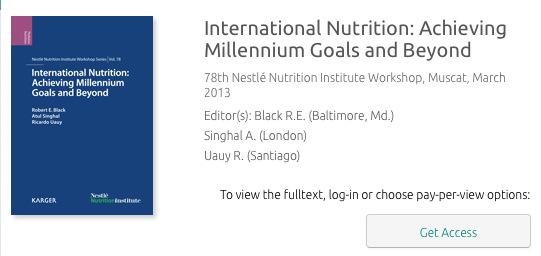I have been told long ago to take care of the last sentence in a paper, avoiding any unjustified conclusion or any unwarranted speculation. Let’s start with a fully justified last sentence in the new volume of “International Nutrition: Achieving Millennium Goals and Beyond”
It says that
The role of vitamin D deficiency or excess as a risk factor for food allergy and atopic disorders requires further study.
Nestec who organized the 78th Nestlé Nutrition Institute Workshop, Muscat, March 2013 is a subsidiary to Nestlé S.A. according to Businessweek. On Oct 10th, 2006 and again July 13th, 2009 I alerted the scientific department of Nestlé that their baby formula may contain an allergenic substance. That last sentence now indicates 7.5 years later, that they slowly get the idea.
There might be reasons, why they didn’t respond earlier. Here is a German press release just 2 days ago. It reads in my own translation:
Nestlé in Biessenhofen is further growing: Nestlé Germany is responding to increasing demands with a new product line of hypoallergenic baby formula. “With BEBA alone we have been growing by 23%. It is therefore rational, to invest another 20 million Euro in our production by setting a new milestone” says Gerhard Berssenbrügge, CEO of Nestlé Germany AG during the opening event. Already in 2011 a new factory costing more than 100 millio Euro has been opened. “The new product line combines aseptic filling with modern sterilisation and guarantees highest taste and storability. Also vitamins in the baby milk are retained at highest quality” explains plant managerTim Keller.”
My last sentence is just quoting Immanuel Kant: Sapere aude / Dare to know whenever you are reading press releases.
The only thing I could add is a minor post scriptum. The last sentence of the press release is wrong of course as cow milk extracts contain only trace amounts of vitamin D. Nearly all vitamin D is being supplemented not retained. I could even add another minor post scriptum: According to conventional scientific knowledge there is no effective hypoallergenic infant formula that could prevent allergy. Every pediatric association in the world would immediately recommend this formula. Allergen avoidance is a concept of the late 80ies; immunotherapy of existing allergy (“allergy shots“) works by controlled, gradually increasing doses of allergen.

